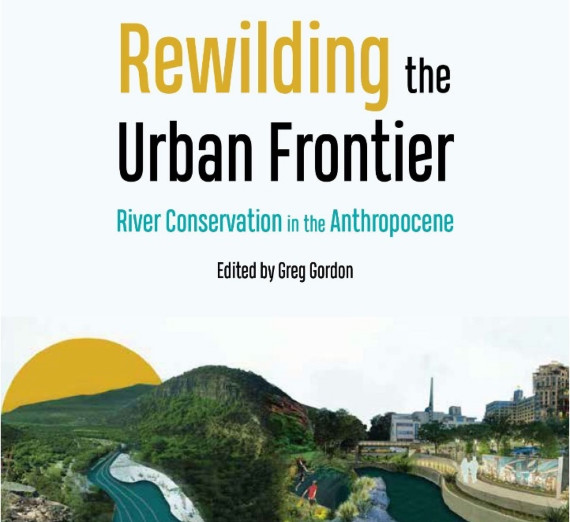Event Details
Date & Time
Tuesday, Oct 22, 2024 6:00 PM
Event Link
Department
Institute for Climate, Water, and the Environment
Cost
Free and open to the public
Location
Hemmingson Auditorium, Gonzaga University and livestreaming.
Contact/Registration
Event Type & Tags
Register for the Event
About This Event
While acknowledging the profound impact our species has had on the natural world, and rivers in particular, Rewilding the Urban Frontier: River Conservation in the Anthropocene argues that this new age in which humans have inexorably modified the planet presents opportunities for rethinking our relationship to the natural world and potentially healing the age-old rift between humans and nature. More than any other ecosystem, urban rivers typify our evolving relationship with nature. Once a necessity for the development of civilization, by the twentieth century, America’s rivers became neglected and abused, channelized, dammed, filled with sewage, and toxic waste. But then, spawned by America’s rising environmental awareness, the Clean Water Act of 1972 initiated a clean-up of the nation’s waterways. Fifty years later, most of America’s rivers are “fishable and swimmable” once again. But along with river revitalization, America has also experienced an explosion in urban growth such that our natural ecosystems are highly fragmented and disappearing under asphalt and concrete. Yet, urban rivers provide crucial wildlife corridors and connectivity to core conservation areas and offer opportunities to connect to the natural environment. Done right, rewilding urban rivers can help forestall biodiversity loss and address environmental and social inequities.
About the speakers:
- Greg Gordon was born at the junction of Cherry Creek and the South Fork of the Platte River and spent much of his adult life living along the Clark Fork and Dearborn rivers. He now lives a short walk from the confluence of Hangman Creek and the Spokane River and is a professor of Environmental Studies at Gonzaga University.
- Margo Hill, JD, MURP, is a Spokane Tribal member and grew up on the Spokane Indian reservation. She serves as the Associate Director of Small, Urban, Rural and Tribal Center on Mobility (SURTCOM). Dr. Hill served as the Spokane Tribal Attorney for 10 years and as a Coeur d’Alene Tribal Court Judge. Ms. Hill earned her Juris Doctorate from Gonzaga School of Law and her Master of Urban and Regional Planning from Eastern Washington University.
- Heidi Lasher, MPA, MFA, spent more than 20 years working as a freelance communications and policy consultant, specializing in global health topics such as safe water, immunization services, vaccine supply chains, and family planning. In 2019, she pivoted from consulting and began writing her own work. Her nonfiction essays have been published in several magazines and literary journals including Orion Magazine, Prairie Schooner, Litro Magazine, Cream City Review, and in Allegory Review’s nonfiction anthology, Allegheny. She is currently working on a collection of essays about time, change, and growing older along the Spokane River.
- Prior to retiring from Eastern Washington University in 2020, Robert L. “Bob” Bartlett spent eighteen years at Gonzaga University where he held a variety of enriching positions. His passion is learning, writing, and storytelling. He continues to consider myself a work in progress--a storytelling who’s learning to write. Now in retirement his professional goals include; sharing the great outdoors with others who look like him, being a fly-fishing educator and instructor, writing a monthly column on wellness in Spokane’s Black Lens newspaper titled, “From the Water’s Edge”, being a member of and serving on the boards of environmentally minded organizations and pursue writing on my obsession for family and rivers.

